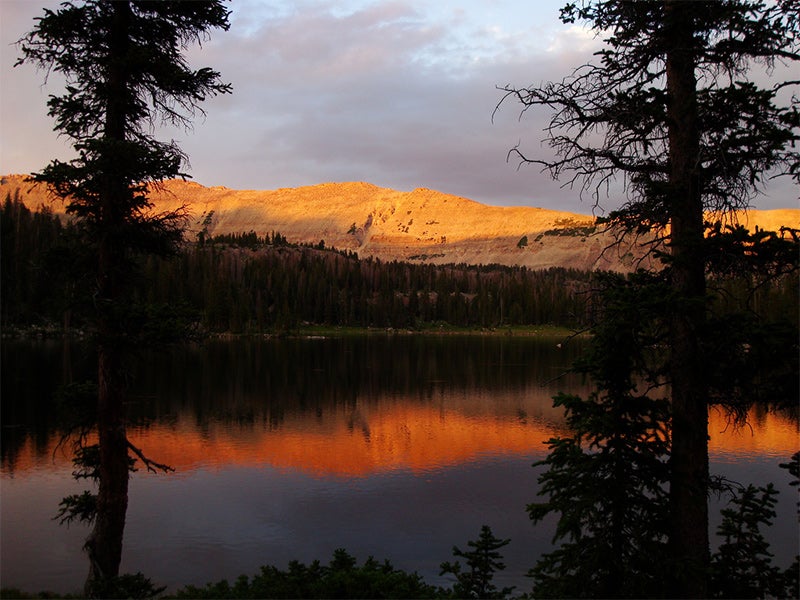Earthjustice goes to court for our planet.
We’re here because the earth needs a good lawyer.
The Supreme Court Just Weakened a Bedrock Environmental Law
What’s happening: In a case called Seven County Infrastructure Coalition v. Eagle County, the Supreme Court undermined the principle that the government must consider predictable environmental harms before approving big projects.
In this case, Earthjustice and the Center for Biological Diversity represented environmental and public health groups in defending this common-sense approach, which protects both people and the environment from ill-conceived proposals.
Why it matters: This case is part of a broad attack by polluting industries and their political allies seeking to weaken the National Environmental Policy Act (NEPA), a federal law that gives the public a voice in environmental decision-making and helps agencies account for the impact of proposed projects.
Now that these industries have gotten their way, more pipelines, chemical facilities, and other destructive infrastructure could get approved without the federal agencies involved having to consider their potentially harmful environmental effects. The Court’s decision, coupled with other recent federal actions to weaken the regulations implementing NEPA, creates more chaos and confusion and will likely result in more litigation.
The Facts of the Case
- Seven County Infrastructure Coalition v. Eagle County is about an 88-mile proposed rail project in Utah that would transport waxy crude oil from the Uinta Basin to existing rail networks in Colorado, ultimately allowing the oil to end up in the ports and refineries in the Gulf Coast of Texas and Louisiana. The rail line’s backers believe it could increase oil production in the region up to five-fold.
- A coalition of environmental groups and Eagle County, Colorado, challenged the rail project’s approval in court. They argued that it violated NEPA’s requirement that the federal agency responsible for approving the project must disclose and analyze all reasonably foreseeable environmental impacts.
- In 2023, a federal court threw out the project’s approval. The court found that the federal agency, the Surface Transportation Board, failed to explain why it did not address harms from increased drilling in the Basin and from increased crude oil refining on the Gulf Coast. The agency also failed to weigh the impact of spills and accidents involving oil trains, including contaminating the Colorado River.
- A coalition of county governments that wanted the railroad built took the decision to the Supreme Court. The counties argued against settled law that requires agencies to consider predictable environmental harms before deciding whether to permit a project.
What’s at Stake
- Industry and its allies wanted the Court to prevent our government from looking before it leaps. Congress wrote NEPA to make sure that government agencies consider the environmental consequences of their decisions before acting. In this case, polluting industries and their allies successfully convinced the Court to put blinders on those agencies and keep the public in the dark.
- The proposed rail line won’t just affect the communities and habitats that it would run through. Its construction means that trains full of crude oil will travel precariously close to the Colorado River. Its ultimate destination was the refineries along the Gulf, an area already overburdened by the negative impacts of fossil fuel production whose residents would face more exposure to toxic pollution. Burning that oil will also worsen climate change and increase extreme weather events across the country.
- Earthjustice got involved in this fight because agencies need to make transparent, well-informed decisions that incorporate concerns from affected communities — as the law requires them to do. NEPA is the way for federal agencies to consider a project’s harm and alternatives that could lessen that harm. It’s a valuable tool for engaging communities, promoting transparency, and ensuring the government is making well-informed decisions that benefit the public good.
What Happens Next
- At the local level: This ruling means the federal agency responsible for approving the Uinta Basin Railway can ignore its inevitable risks, including increased oil extraction in the Basin and oil refining in Gulf communities like Texas and Louisiana, as well as downstream effects to wildlife, the Colorado River, and public health and safety. While today’s decision means that NEPA may not be an impediment to approving the railway, the approval of the project remains in doubt: The 2023 court decision set aside the approval on other grounds that today’s decision does not affect.
- At the federal level: The Court’s ruling means that federal agencies will be able to ignore environmental harms that are foreseeable, and it grants them more leeway to decide what potential environmental harms to analyze — no matter what the local communities may think is important.
- We’ll fight back: At a time when both the executive branch and Congress are taking advantage of every opportunity to weaken NEPA, Earthjustice and our allies will continue our decades-long fight to defend and strengthen the “people’s environmental law.”

Originally published on October 22, 2024. Updated with news of the Supreme Court's decision.